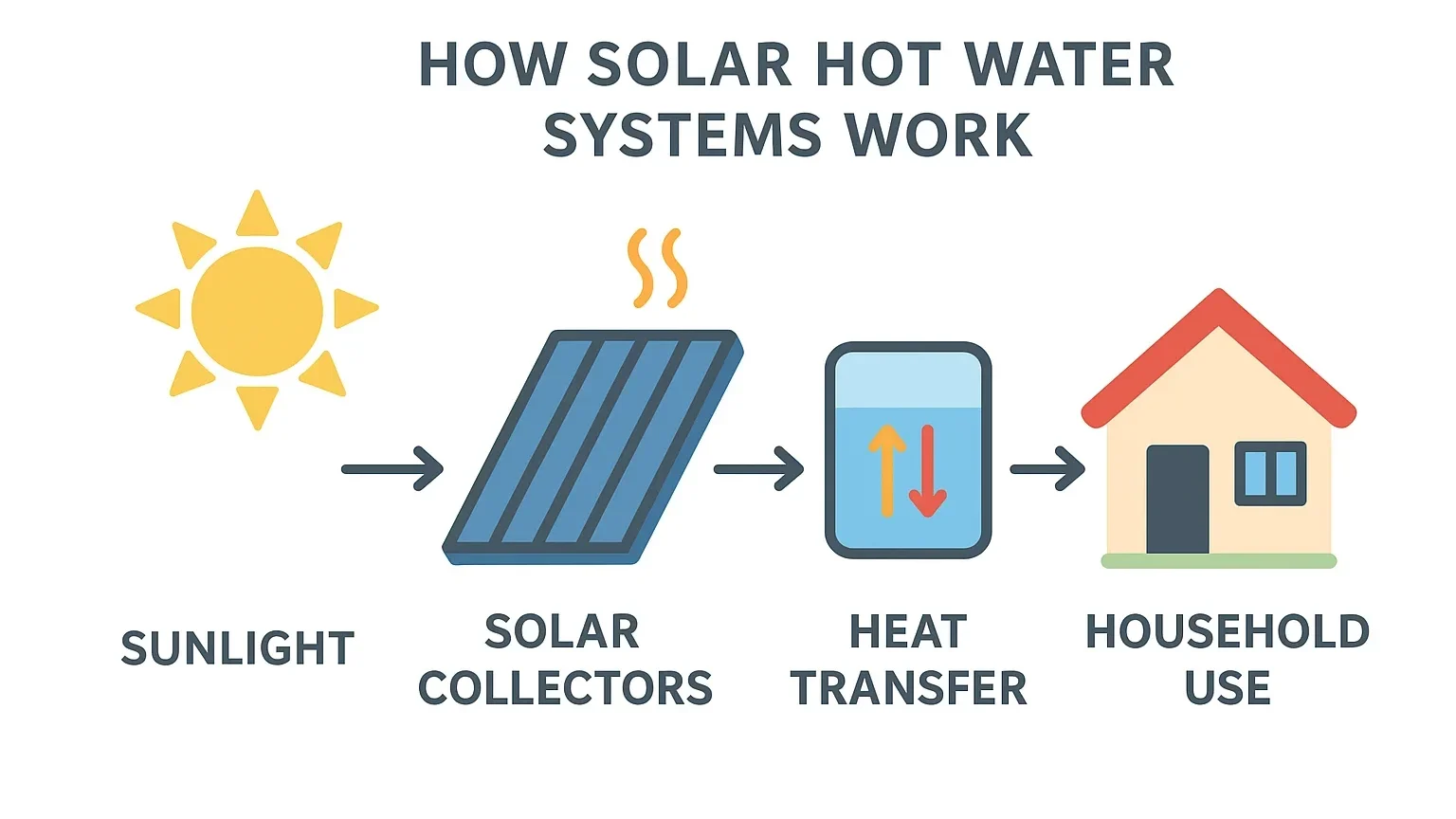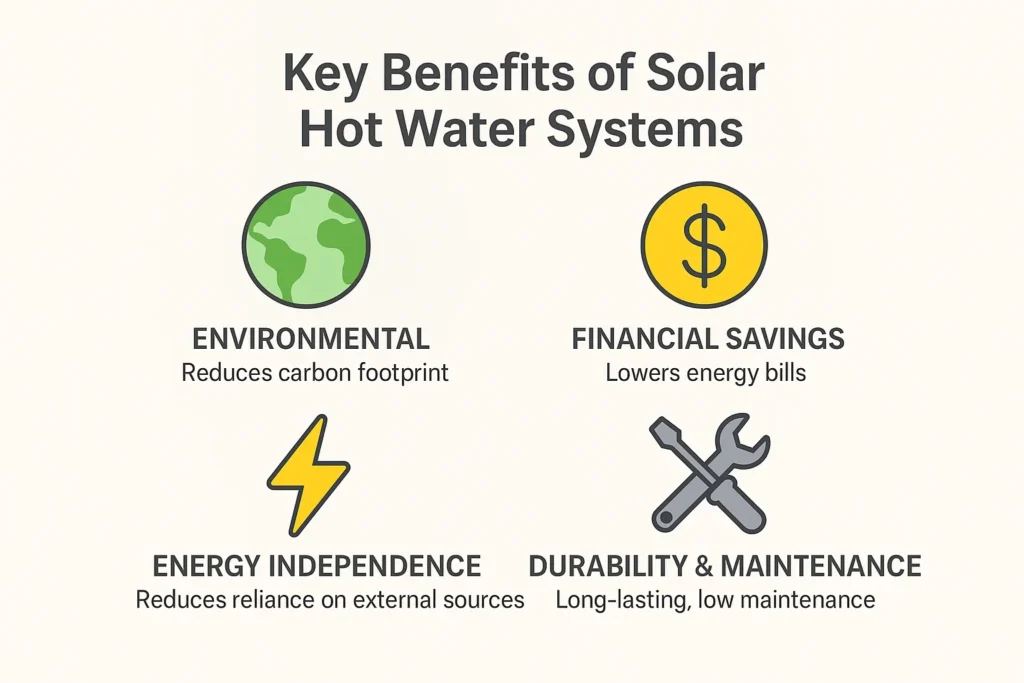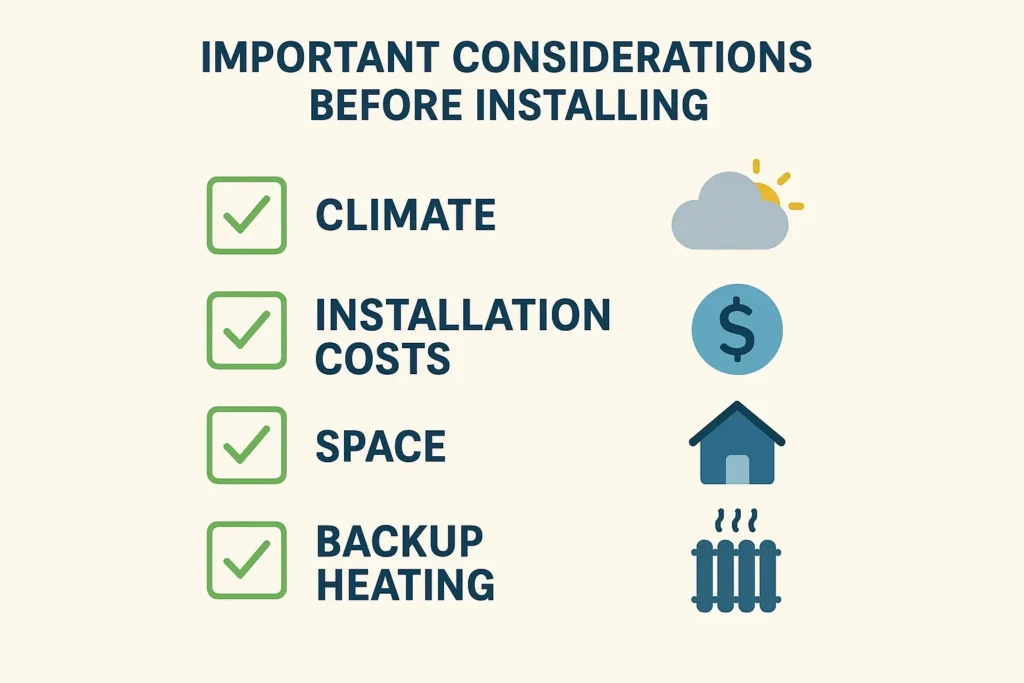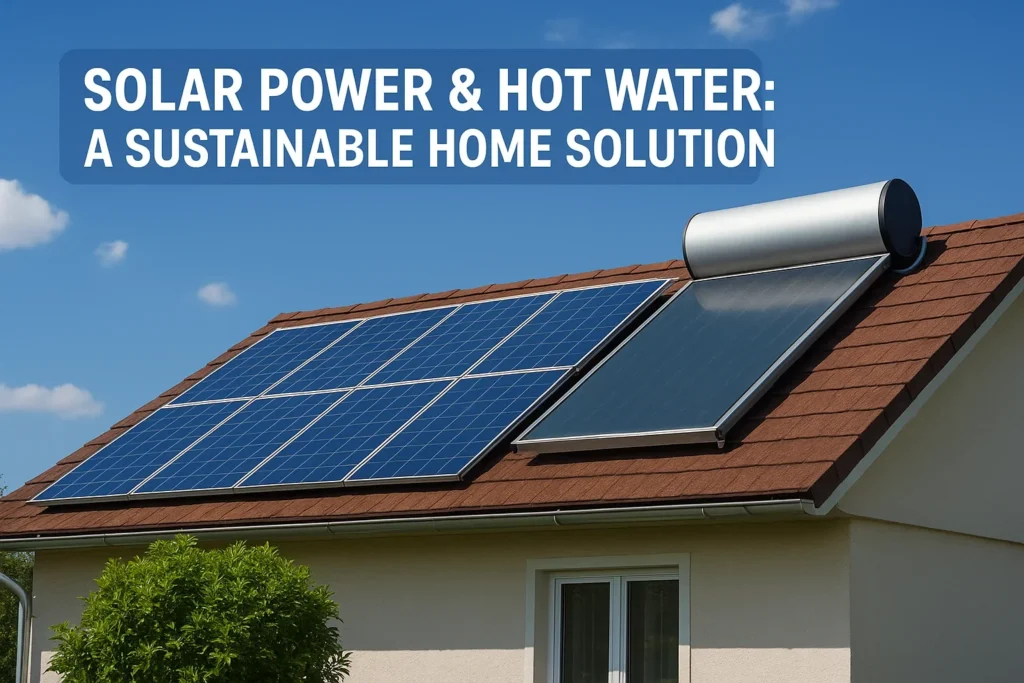Disclaimer: This article is for informational purposes only and should not be considered financial or technical advice. Please consult a qualified professional before making decisions about solar power or heated water system installations.
As we move towards more sustainable living, solar energy continues to rise as a leading solution. From reducing energy costs to minimizing environmental impact, solar technology offers a broad range of benefits for homeowners. One of the most notable applications of solar energy is solar water, which harness Solar Power & Hot Water for residential use.
These systems harness the power of solar panels, combined with water heating technology, allowing you to utilize natural resources in an energy-efficient and affordable manner. Here, we take a deep dive into how solar energy and solar water heating systems work in tandem, and how they can benefit you before you decide whether it’s the right choice for your home.
How Solar Hot Water Systems Work

Solar water heater use solar panels, referred to as collectors, to absorb the sun’s rays. Solar energy is collected from the captured sunlight, and heat is produced in these panels. Then it transfers the heat to water that is placed in a tank, thus offering a renewable supply of heated water for home use.
There are two main types of solar water heating systems:
- Direct Circulation Systems: Such systems have pumps that drive water through the solar collectors and into the tank. Great for year-round homes where temperatures do not usually fall below freezing.
- Indirect Circulation Systems: In colder climates, indirect systems are used. These circulate a heat-transfer fluid (typically antifreeze) through the solar collectors. The heat is then transferred to the water in the storage tank, making it more suitable for areas with freezing temperatures. The International Energy Agency reports that new energy installations, led by solar and wind, surged by almost 50% in 2023, marking the sharpest increase ever. These statistics reflect both government action and consumer and business demand for affordable, clean, and reliable power sources. Lower costs have democratized access to renewable energy.
Key Benefits of Solar Hot Water Systems

1. Environmental Benefits
The Sun is a clean source of renewable energy and doesn’t emit carbon dioxide when generating electricity. With a solar water heating system, you reduce your dependence on non-renewable fuels, such as natural gas and electricity generated from fossil fuels. This not only lowers your carbon footprint but also benefits the planet.
2. Financial Savings
It is not only a great way to reduce your energy bills in the long term, but when considered over the long term, the initial investment is often well worth it. The less you use your traditional water heater, the less your monthly energy bill will be. Solar water heating systems typically save homeowners enough money to cover the installation cost within 2 to 8 years.
3. Energy Independence
You also rely less on external sources of energy if using solar thermal system. This can be especially useful in regions where gas is increasing in cost or erratic in supply. Solar water heating systems offer a level of clean energy independence by harnessing the sun’s energy to produce heated water.
4. Long-Term Durability and Low Maintenance
Solar thermal system is built to last for a long time, and many homeowners can expect their system to last anywhere from 15 to 20 years. Not much care is needed during their lifespan. Some collectors may need to be cleaned from time to time, and occasional check-ups are necessary to ensure everything is working correctly. For this reason, solar water heating systems are a great set-it-and-forget-it option for homeowners.
Important Considerations Before Installing a Solar Hot Water System

1. Climate and Location
The success of your solar water heating system will depend on the climate in which you live and the amount of sunlight available in your area. Solar water heaters work all year long, too; however, if you are living in an area where the sun may not be seen over the course of the year. If you live in an area with heavy cloud cover or prolonged periods of rain, this type of heater may not be as effective, unless you have a backup system to maintain the water temperature.
2. Installation Costs
What is the cost of installing a solar system? The initial cost to installsolar thermal system can vary from case to case, depending on the system’s size, the type of collector used on the roof, and the complexity of the installation. But if you take INTO account that various governments will often incentivize and give rebates to homeowners, it becomes and then some, which is a lot more affordable.
3. Space Requirements
Solar water heater require space on your roof to install the solar collectors. Ensure that your roof is suitable for the installation, with sufficient space to accommodate the panels without causing shading or interfering with other rooftop equipment, such as chimneys or air conditioning units.
4. Backup Heating
It’s essential to have an alternative heating source if you live in an area where the sun isn’t always visible, or if you spend the winter months at a specific home. The majority of solar water heater are complemented by an electrical or gas-powered booster, which guarantees an adequate heated water supply regardless of the outside temperature.
Conclusion: A Smart Investment for Your Home
The benefits of solar power and systems are numerous, including reducing your energy bills and promoting eco-friendly living. By using sunlight to produce your warm water, you can save money and create a cleaner environment. If you want to be more environmentally friendly, save money on your power bills or reduce your reliance on electricity, then investing your money solar thermal system now may be a wise decision for your home.











